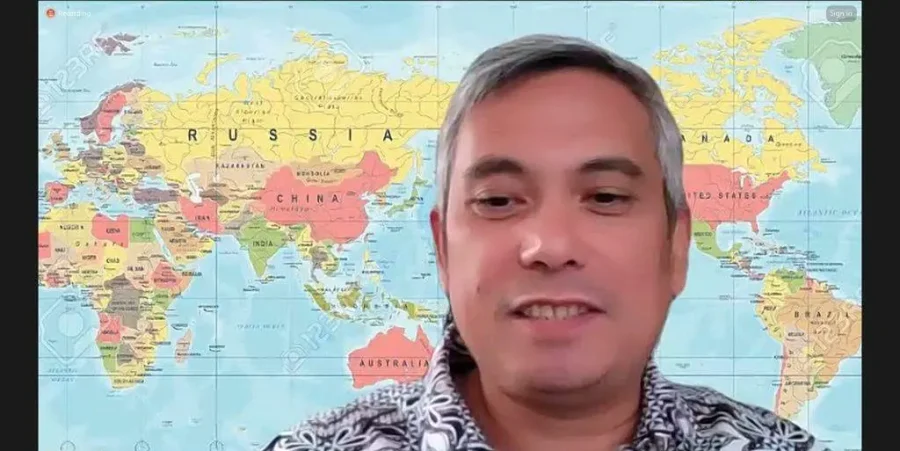Zubair Qureshi
The Regional Comprehensive Economic Partnership (RCEP) Agreement comprises Australia, Brunei Darussalam, Cambodia, China, Japan, Lao PDR, New Zealand, Singapore, Thailand and Viet Nam, paving the way for the creation of the world’s largest free trade area.
“Originally proposed by Indonesia during ASEAN Chairmanship in 2011 and implemented in 2022, the agreement would cover 2.3 billion people or 30pc of the world’s population. It will also contribute US$ 25.8 trillion which is about 30pc of global GDP, and account for US$ 12.7 trillion, over a quarter of global trade in goods and services, and 31% of global FDI inflows”. Dr. Kiki Verico enlightened the participants in his presentation. Deputy Director of Research at the University of Indonesia, Dr. Kiki Verico expressed these views while speaking at the session-9 of the Online Internship Programme on the Contemporary Dynamics of Indonesia, a collaboration between the Indonesian Embassy and Bahria University Islamabad.
Going into great details, the speakers said that the world’s economic gravity has shifted from the US and UK to Asia, with Asia’s contribution increasing from 14.1% in 1948 to 36.1% in 2020. He continued that Latin America’s contribution decreased from 11.3 percent to 3.1%, while Africa’s increased from 7.3pc to 2.3pc.
Europe’s contribution edged up from 35.1% to 38.2%, indicating a shift in economic gravity from the US and the UK to Asia, he underscored.
The speaker argued that the RCEP promotes greater economic convergence for ASEAN, as it includes all 10 member states and upholds the centrality of ASEAN, compared to the CPTPP’s four ASEAN members. He believed that the single track of the RCEP would better fit ASEAN’s character than the dual track of both the RCEP and the CPTPP. “The RCEP initiative reflects Indonesia’s commitment to promote regional integration and favorable environment for better trade relations in the Indo-pacific region and beyond” Dr. Kiki Verico informed the participants while highlighting Indonesia’s monumental contribution in the making of the RCEP.
He added that the RCEP Agreement is ASEAN’s most outstanding achievement that would contribute to regional political security and reinforces ASEAN centrality in Southeast Asia and the Indo-Pacific.
The guest speakers in his projection said that the RCEP Agreement is expected to increase competitiveness and strengthen the global production network, promote regional supply chain through better market access for exports of goods and services, reduce or eliminate trade barriers, and enhance transfer of technology.
“The RCEP Agreement is a manifestation of the region’s resolve to keep markets open; strengthen regional economic integration; support an open, free, fair, inclusive, and rules-based multilateral trading system; and, ultimately, contribute to global post-pandemic recovery efforts” the speaker emphasized when shedding light on its objectives and scope.
Through new market access commitments and streamlined, modern rules and disciplines that facilitate trade and investment, RCEP promises to deliver new business and employment opportunities, strengthen supply chains in the region, and promote the participation of micro, small and medium enterprises into the regional value chains and production hubs.
“Importantly for Indonesia, the RCEP presents an opportunity to better integrate Indonesia into regional value chains and attract investments into its industries, especially manufacturing, which accounts for 20 percent of GDP” the speaker informed the participants.
Indonesia is keen to diversify its manufacturing sector and actively seeking to climb up the global value chain to transition from an exporter of raw commodities to a producer of high-value products. RCEP could incentivize new investments and partnerships for expanding industrial capabilities and promoting innovation, besides enabling the climb up the value chain. One such example is the country’s drive to becoming a global EV battery supplier and establishing a comprehensive EV supply chain.










